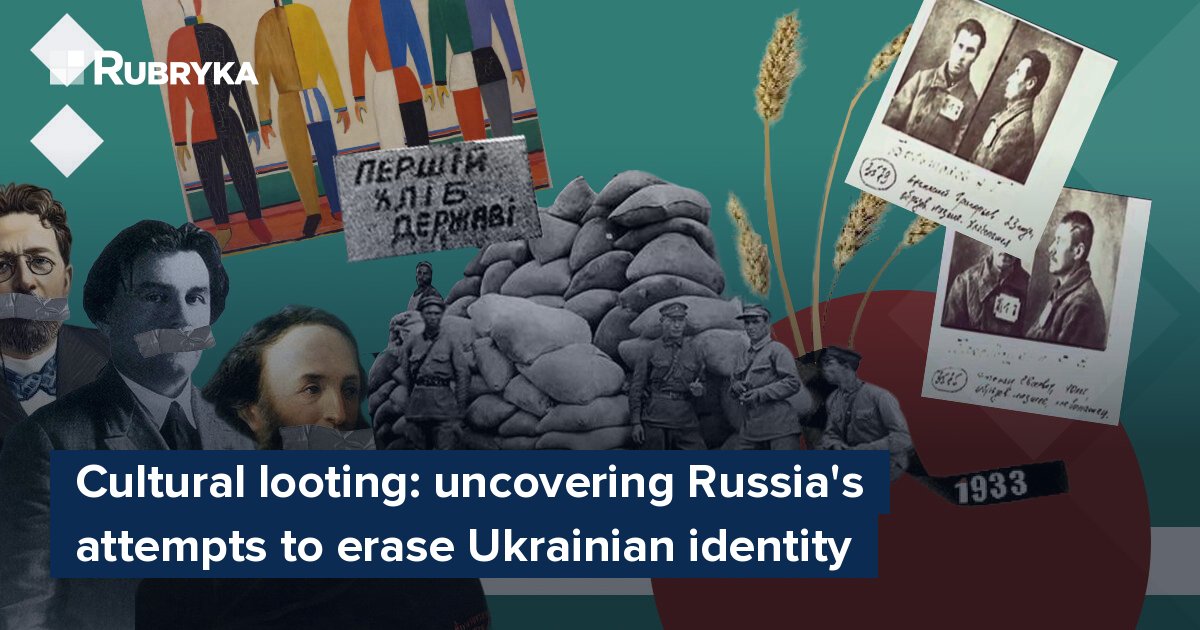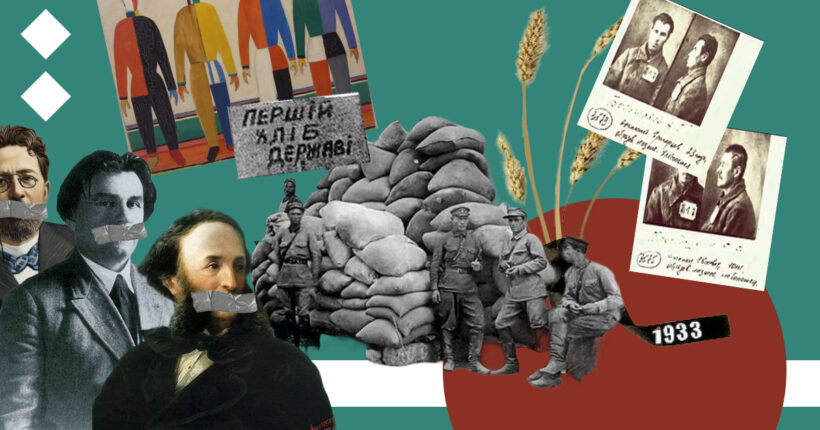
Shakespeare got it wrong with "What's in a Name?": stealing the name means stealing the history
Throughout history, Russia has been known by many names, the most prominent being Muscovy (romanized "Moscovia"). This name was derived from the capital city of Moscow, founded by Prince Yuriy Dolgorukyi, son of the Prince of Kyivan Rus. Muscovy was used in many European and some modern Asian languages, and was often seen on maps of the 16th-19th centuries made in Europe. This name was controversially changed to the Russian Empire on October 22, 1721, by the Russian tsar (emperor – ed.) Petr I.
Mykhailo Hrushevsky, the esteemed Ukrainian academician, poignantly said: "We are a people whose name was stolen."
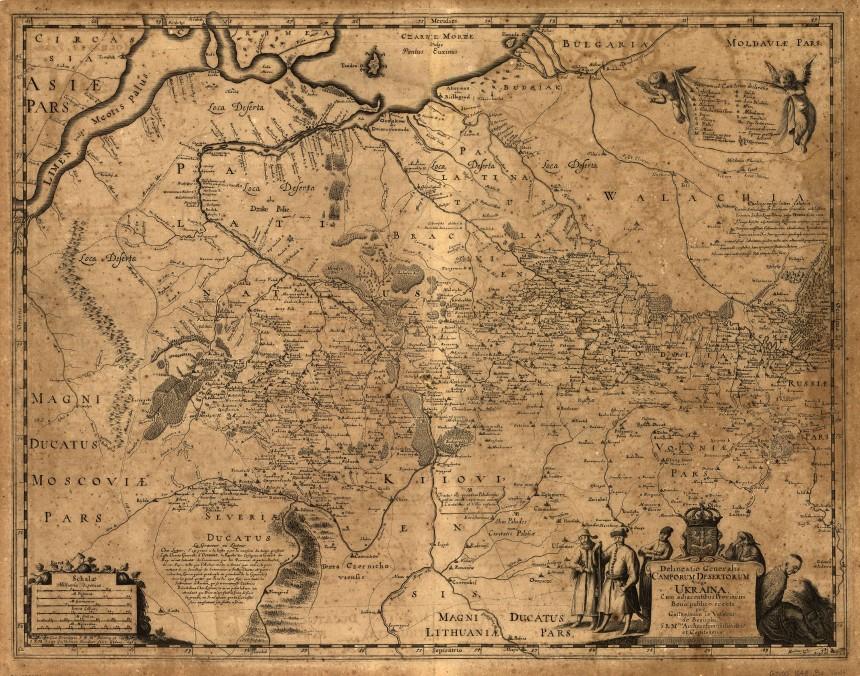
Beauplan's map/Picture from open sources
Modern historian Dmytro Bilyi states that the historical name of Russia is Muscovy and that Russia is a self-title. According to Bilyi, Petr I deliberately appropriated the name of the thousand-year-old Kyivan Rus to steal the state's history. He further notes that the name "Ukraine" appeared forty-one years earlier than the name "Russia," as evidenced by the map of Ukraine of the French military engineer and cartographer Guillaume Levasseur de Beauplan from 1680.
Yaroslav Dashkevich, the doctor of history, elucidated that this fraudulent act gave the Moscow region, albeit falsely, a repute of a culturally refined and civilized state with a venerable historical tradition.
The matter of determining the true name of Russia has surfaced once again, with the Russian foreign minister recently calling his state "Rus." This sparked a response from the Ukrainian Foreign Minister Dmytro Kuleba, who accused Russia of attempting to steal a history that did not belong to it. Ukrainian Permanent Representative to the UN Serhii Kyslytsia has since creatively developed this opinion, proposing geographical innovations to the issue:
"Let's take Magyarország Угорщина [Uhorshchyna] (Ukr); Hungary (Eng); Ungarn (DE); Węgry (PL); Österreich – Austria (Eng); Rakúsko (Slovak). All in all, everyone calls countries however they want [in their language-ed.].
So, what prevents us – the Cabinet of Ministers, the Verkhovna Rada (Ukrainian Parliament) – from reverting to the historical name of Muscovy?
Their current name is stolen anyway."
Moreover, a petition on the Ukrainian president's website, calling for the adoption of "Muscovy" as the official name of Russia, has gathered the required number of votes, so Zelensky is to consider it and provide an official response to it.
"Deny thy father and refuse thy name": Russian appropriation of Ukrainian artists
Moreover, Russia has been manipulating history, particularly harming Ukraine, and claiming famous Ukrainians as its own. The Russian Federation endeavored to present several esteemed artists of Ukrainian descent as if they were from Russia.
This list is rather impressive:
- Among the remarkable Ukrainian painters Russia assimilated, one can name Illia Riepin, Ivan Aivazovskyi, Kazymyr Malievich, Arkhyp Kuindzhi, Oleksandr Murashko, Davyd Burliuk, and Oleksandra Ekster.
- Also, you may be familiar with the renowned works of famous "Russian" writers such as Mykola Hohol, Ilf and Petrov, and Anton Chekhov – whose origin is more closely associated with Ukraine.
- Cultural looting did not bypass the musical sphere either – for hundreds of years, Russia has passed off such outstanding Ukrainian composers as Maksym Berezovskyi, Dmytro Bortnianskyi, and Semen Hulak-Artemovskyi as its own composers.
Ukraine has made significant progress in reclaiming its identity in the art world. In a groundbreaking move, the Metropolitan Museum of Art has marked works of famous Ukrainian artists such as Arkhyp Kuindzhi, Ivan Aivazovsky, and Illia Riepin as works of "Ukrainian artists." This is a huge step forward in recognizing the true essence of Ukraine's art and artists.
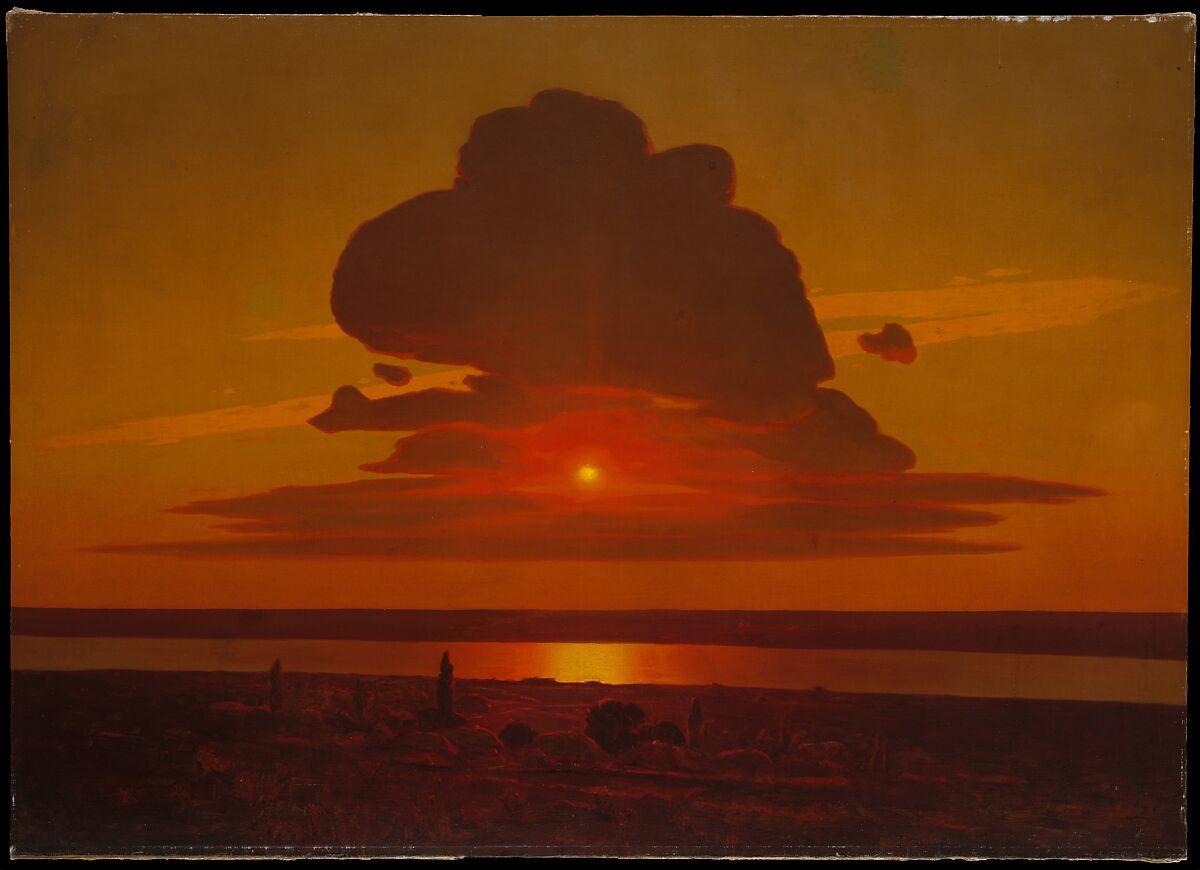
Arkhyp Kuindzhi. Red Sunset. Photo: Metropolitan Museum's website
Currently, Ukraine's rightful identity is being acknowledged, enabling the country to reclaim its rightful place in the realm of art.
"To be or not to be": physical destruction of unappropriated artists and intelligentsia
Russia has long repressed Ukraine's intelligentsia by shooting, arresting, and forcing them to work for the regime. The invasion of Ukraine has only seen their atrocities escalate.
In 1876, Emperor Alexander II issued the Emsk Decree prohibiting the Ukrainian language. Moreover, specific steps were taken to relocate Ukrainian teachers to the Russian districts, expelling Ukrainian scholars from scientific institutions and even arrest them. In contrast to the harshness of the Stalin period, the arrests from the nineteenth century were considerably less frequent and less severe, with lighter punishments being handed out.
Since the late 1920s, the Soviet authorities systematically arrested Ukrainian intelligentsia with fabricated charges, often concealing execution dates.
In 1937, Stalin's decision to search and prosecute "enemies of the people" unleashed Great Terror across the USSR. This culminated in the largest mass execution of Ukrainian intellectuals at Sandarmoh tract (October 27-November 4), killing 1,111, including 287 of Ukrainian descent, such as Kulish, Pidmohylnyi, Kurbas, Voronnyi, and Zerov.
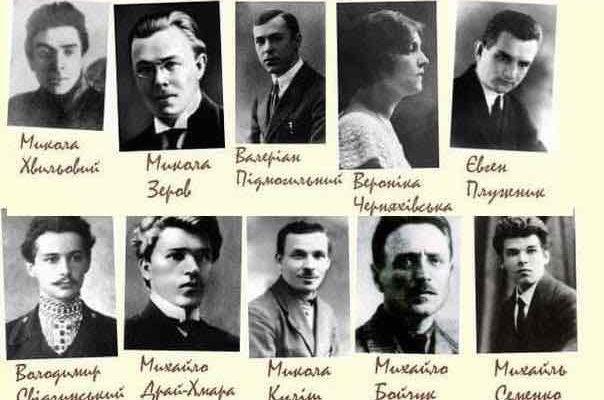
Representatives of the Executed Renaissance / Picture: https://dovidka.biz.ua/rozstrilyane-vidrodzhennya-predstavnyky/
1971's Operation "Block" targeted those seen as a threat to the USSR, resulting in the arrests of Vasyl Stus, Vyacheslav Chornovil, Ivan Svitlichny, and 11 others in Kyiv and Lviv for speaking out against Soviet policies. Moreover, traditional caroling and gift-giving were also prohibited.
Now Russia continues eradicating Ukraine's elite. On April 10, 2022, it was reported that the renowned Ukrainian writer, poet, and literary prize laureate Volodymyr Vakulenko had been abducted by Russian forces. After the de-occupation of Izium in the Kharkiv region, a mass burial site was uncovered, wherein Vakulenko's body was discovered with two bullets from a Makarov pistol lodged in it.
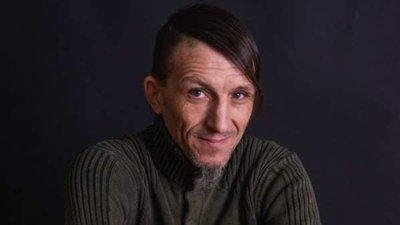
Murdered Ukrainian writer Volodymyr Vakulenko/ Photo: Iryna Novitska/Facebook
A Ukrainian novelist Victoria Amelina, who discovered and published the hidden diary Vakulenko kept during the occupation, was severely injured in a Russian attack on Kramatorsk on June 27, 2023. She died a few days later in a hospital — her injuries were incompatible with life.
The Russian policy of repression and aggression has had tragic consequences. These repressions killed many civilians and hindered the Ukrainian artistic process by eradicating the Ukrainian elite.
Paraphrasing Shakespeare, "Something is rotten in the state of Russia": erasing national identity through destruction of the whole people
Today, the Russian Federation is actively engaging in a campaign of aggression against Ukraine in an attempt to reassert its lost imperial status. Utilizing its military forces and special services, the Putin-led Russian regime is actively engaging in a campaign of genocide against the Ukrainian nation, which is seen as the source of Ukrainian culture and identity. The Ukrainian civilian population and infrastructure are being systematically destroyed with no military expediency. At the same time, Ukrainians, including tens of thousands of children, are being deported en masse from the occupied territories to remote regions of Russia. Additionally, the regime is actively attempting to destroy Ukrainian culture and its education system.
This strategy is not new: the leaders of this Russian regime have their roots in the Soviet state security agencies. They are operating in the paradigm of the Bolshevik criminal policy against Ukrainians. The Kremlin has long understood the main axiom; as long as the Ukrainian nation exists, there will be an obstacle to their imperialist aspirations. Ninety years ago, the communist totalitarian regime led by Y. Stalin sought to destroy the active and nationally conscious part of the Ukrainian nation that opposed the new communist reality. In 1932-1933, a genocidal policy was implemented against Ukrainians, namely an artificially organized famine, later called the Holodomor.
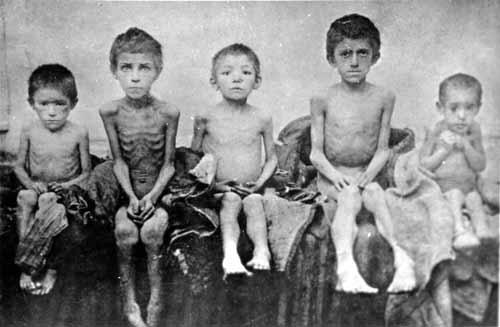
Holodomor victims/Photo: Wikimedia
The exact number of fatalities resulting from the Holodomor has yet to be determined, with estimates ranging from 3.9 million to 9.1 million casualties.
Utilizing all the strategies to suppress Ukrainian identity, such as confiscating the possessions of Ukrainian creators, outlawing the language and folk customs, and persecuting cultural leaders, the Russians proceeded to the most radical approach: the physical extermination of the Ukrainian people.
Why is Russia doing that? – "That's the question"
There are numerous motivations behind Russia's attempts to obliterate Ukrainian identity:
- To prevent the spread of pro-Europe and pro-Western sentiment in Ukraine, which could further weaken Russia's influence in the region.
- To limit the ability of Ukraine to develop as an independent nation and ultimately maintain and increase Russia's power in the region.
- To further consolidate its control over Ukraine and diminish the influence of Ukrainian culture within the country.
- To pursue a policy of Russification and limit the recognition of Ukrainian identity and culture.
- To discredit the Ukrainian nation and its culture by attempting to erase its history and traditions.
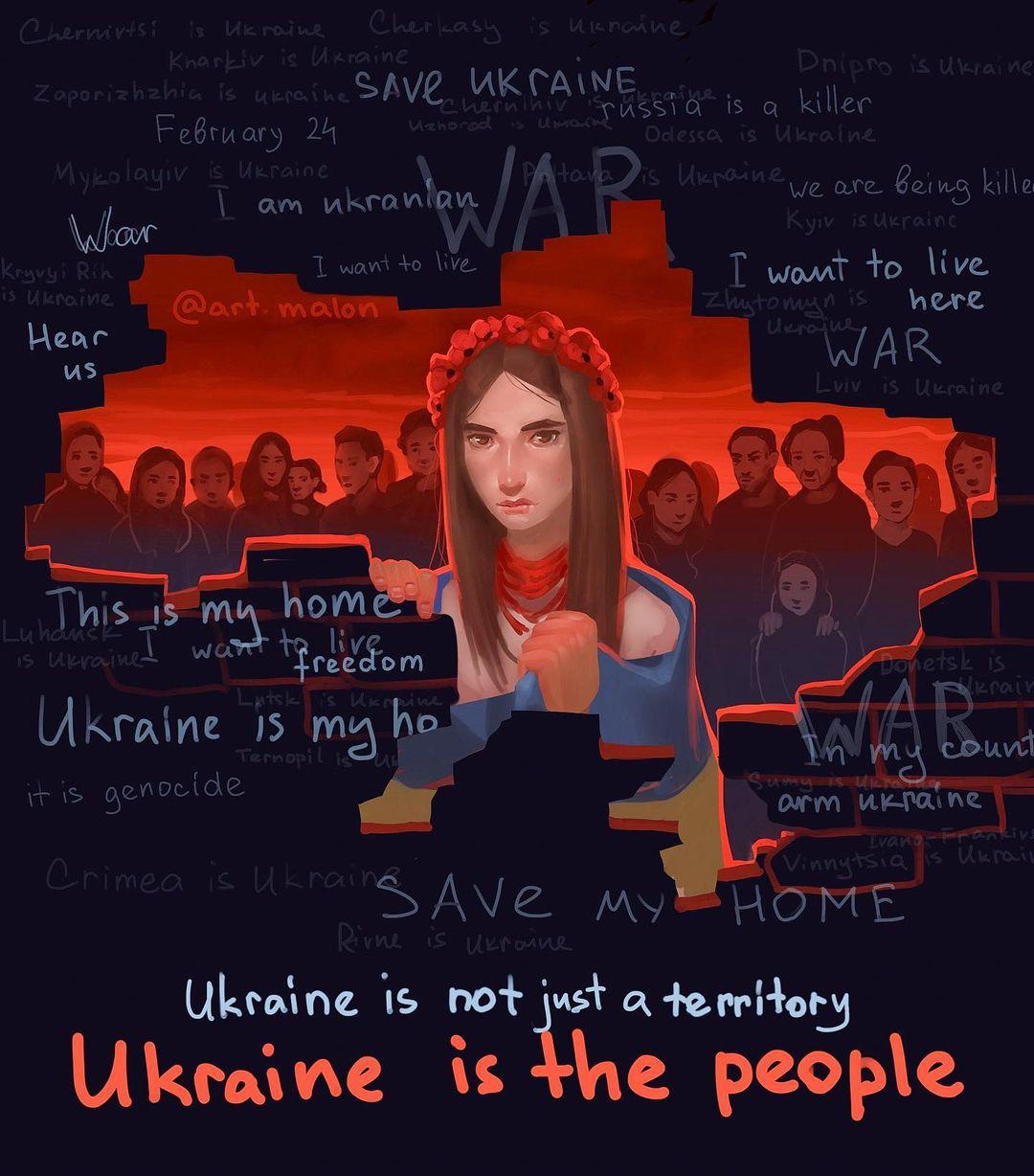
Picture by Maria Loniuk/Instagram
As we can see, Russia has plenty of reasons to eradicate the Ukrainian identity. However, there is only one countermeasure to this criminal behavior — to support Ukraine and help it win this unjust, aggressive war imposed by Russia so that the Ukrainian identity, culture, and people survive.
Newsletter
Digest of the most interesting news: just about the main thing



